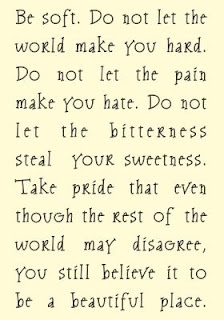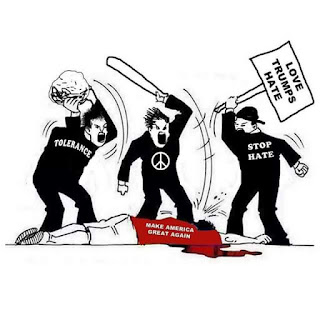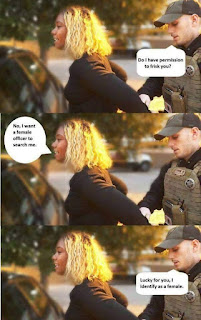Protesters in Hong Kong's Causeway Bay district on Tuesday.
Felix Wong/South China Morning Post
Felix Wong/South China Morning Post
The Wall Street Journal
written by Chester Yung, Edward Ngai and Ned Levin
Tuesday July 1, 2014
HONG KONG — A buoyant and rain-soaked crowd stretching more than 2 miles across Hong Kong on Tuesday marked the anniversary of the city's handover to China by denouncing interference from Beijing and demanding democratic elections.
The public holiday marking the end of British colonial rule and the city's return to Chinese sovereignty has become an annual day of protest in Hong Kong. This year, the 17th anniversary of the handover, the event has taken on new significance.
Demands for universal suffrage are growing while some members of the public are increasingly concerned about Beijing's approach to the city, which was promised a high degree of autonomy after the handover. The slogan of this year's rally was "Defending Hong Kong Authority: No fear of Beijing's threat of comprehensive control."
Beijing has said universal suffrage in Hong Kong will begin in 2017. But the city's government has wrestled with the question of how to introduce direct elections.
"I have never come to protest in the July 1 march before," said Kwok Lin-ka, a wheelchair-bound 81-year old waiting for the protest to begin. "If I didn't come this year, I feel like my grandchildren and great-grandchildren would never forgive me."
A carnival atmosphere prevailed at the protest's gathering point in Victoria Park, with crowds singing "Do You Hear the People Sing" from the musical "Les Misérables" competing for attention with a uniformed, drum-heavy marching band convened by Falun Gong, a spiritual movement that is banned in mainland China. Organizers said more than 100 civil groups joined the event.
Estimates for the number of attendees have yet to be announced, but people who have seen previous rallies say they have never seen a crowd as large. It took more than four hours for the last marchers to leave the park. Organizers had hoped to draw more than 500,000 people to the march, which could be a record turnout.
Along the protest's route, volunteers from Hong Kong's panoply of political movements handed out pamphlets and shouted slogans supporting a range of political views, from demanding the resignation of Mr. Leung, to mourning perceived losses in press freedom, to protecting the city's northeast from development. At one point, police allowed protesters onto the tracks of Hong Kong's iconic tram line to accommodate the swelling crowd. By the time the front of the protest reached Central, protesters were drenched by one of the city's common summer rainstorms.
In 2003, more than 500,000 Hong Kong people took to the streets during a July 1 rally, demanding the resignation of former Chief Executive Tung Chee-Hwa after he said he planned to introduce an antisubversion law. Mr. Tung stepped down in March 2005, nearly two years before completing his second five-year term.
At this year's protest, students also vowed to stage a sit-in overnight in the Central business district and in front of Chief Executive Leung Chun-ying's office in Admiralty. Student leaders, who have predicted that more than 2,500 people will take part in the sit-in, have said that all their activists are prepared to be arrested.
"After we are done marching here, I encourage you to go support the students," a rally leader said over a loudspeaker. "Students protect Hong Kong, and Hong Kong must protect our students."
The planned sit-in was seen as a precursor to future protests. A pro-democracy coalition, Occupy Central, has called for protesters to paralyze the city's financial district later this year if their demands for universal suffrage in the election of Hong Kong's top leader are not met.
Mr. Leung struck a conciliatory note with pro-democracy advocates earlier Tuesday, saying he and his government "will do our utmost to forge a consensus" on implementing universal suffrage. Mr. Leung spoke after the official ceremony Tuesday morning marking the anniversary of the handover, but stopped short of detailing plans for the vote for chief executive in 2017.
Earlier this week, Occupy Central completed a 10-day unofficial referendum that has no legal standing, though it represented a chance for residents to express their views on the mechanism for picking candidates for the city's leader. The results, released Monday, showed that almost 800,000 people—more than 10% of Hong Kong's 7.2 million population—took part, and a plurality of them backed an electoral-reform proposal that would allow candidates for Hong Kong's chief executive to be nominated by the public, political parties, or the nominating committee.
The vote results come after a week of heated political rhetoric, with pro-Beijing media denouncing the vote as "an illegal farce." The organizers of the referendum, however, have interpreted the turnout and results to mean that even temporary acceptance of "non-genuine universal suffrage…[has] been defeated."
Earlier in June, Beijing stressed in a white paper that the city only has "the power to run local affairs as authorized by the central leadership." That position has stirred fierce opposition in the former British colony.







































No comments:
Post a Comment